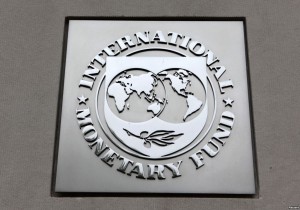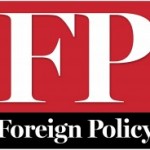By
The research department of the International Monetary Fund dropped a political bombshell last month. The furor was set off by the publication of an article — “Neoliberalism: Oversold?” — that sparked a near-panic among advocates of free market policies and celebrations among their critics. The piece concluded that, over the past 30 years, the proponents of the economic philosophy known as “neoliberalism” have been systematically overselling the benefits of the two planks at its heart — namely, fiscal austerity during economic slowdowns and the deregulation of financial markets.
 This is a huge concession for an institution long known for its ideological self-assuredness. Essentially, the article contends that these two policies, which the IMF has long championed, are of questionable utility. It finds that they “have not delivered” the higher economic growth rates that were promised and may have even done more harm than good. Additionally, according to the article, both fiscal austerity and increased financial openness have often exacerbated economic inequality, which itself could become a drag on future economic growth rates. In other words, the venerable institution had essentially everything wrong — at least as far as these two key tenets of neoliberalism go.
This is a huge concession for an institution long known for its ideological self-assuredness. Essentially, the article contends that these two policies, which the IMF has long championed, are of questionable utility. It finds that they “have not delivered” the higher economic growth rates that were promised and may have even done more harm than good. Additionally, according to the article, both fiscal austerity and increased financial openness have often exacerbated economic inequality, which itself could become a drag on future economic growth rates. In other words, the venerable institution had essentially everything wrong — at least as far as these two key tenets of neoliberalism go.
Most strikingly, the article infers that three policy prescriptions long advocated by the IMF’s critics — regulation of some capital flows, Keynesian fiscal stimulus policies, and effective economic redistribution — all have more merit than the IMF has long contended. As Ben Norton wrote in Salon, these conclusions amount to heresy:Its somewhat like the Pope declaring that there is no God; it is a volte-face on almost everything that the IMF has ever stood for.” Longtime IMF critic Naomi Klein tweeted sarcastically, “So all the billionaires it created are going to give back their money, right?”
Presumably not. But the significance of the article — at least in the long term — is that it might signal a deeper reckoning, both within the IMF and more broadly across Western capitals, about the failure of 30 years of neoliberal policies to bring about financial stability or lessen widening economic divides.
In the meantime, unsurprisingly, the IMF leadership was quick to distance itself from the piece, making clear that it had no intention of abandoning neoliberalism. The organization’s chief economist, Maury Obstfeld, conceded that the shock of the 2008 global financial crisis has “led to a broad rethink of macroeconomic and financial policy in the global academic and policy community,” including within the fund, but argued that the troublesome article “has been widely misinterpreted” and “does not signify a major change in the fund’s approach.” Similarly, the Financial Times described the article as “more a reflection of the vigorous debates [underway] inside the IMF than a brutal takedown of the free market policies the fund has long advocated.”
Indeed, despite the uproar, it’s not clear that the IMF’s approach to economic development is about to change. Many IMF watchers have noted that the fund continues to operate as usual, attaching austerity policies and other neoliberal reforms as binding conditions to its loans. Economist Jerry Epstein said while such internal debates within the IMF are healthy, they have so far had little or no impact at the operational, country level of IMF policy. Isabel Ortiz of the U.N. International Labor Organization wondered “Will the operational side of the IMF even listen to the researchers?”


Leave a Reply